Editor's note: 50 years ago, the Vietnamese people wrote a glorious and brilliant page of history with the great victory of Spring 1975. It was a triumph of patriotism, strong will, aspiration for independence and national unity, a united country. Half a century has passed, the country has continuously grown strong, from the ashes of war to great strides on the world map.
To better illustrate these miracles, Dan Tri newspaper sends readers a series of articles about the country's achievements over the past 50 years, to look back on the past journey, pay tribute to the great contributions and arouse the desire to rise strongly for the journey ahead.
The series begins with an interview with former Vietnamese Ambassador to the US and former Deputy Minister of Foreign Affairs Pham Quang Vinh, on the occasion of the 50th anniversary of the Liberation of the South and National Reunification Day (April 30, 1975 - April 30, 2025).
Looking back on the 50-year journey of unification, what are your feelings about the changes in the country?
- Looking back on the days of April 1975, every Vietnamese person is very proud. I had just graduated from high school and was preparing to enter university. I witnessed a country that had gone through many painful years of war, and had a day of unification and independence. I felt an immense sense of pride.
Along with that spirit, in the hearts of Vietnam there are still the pains of war, stories of difficulties in the post-war period, and the subsidy period - when the country still lacked food.
After 50 years, today we have become a country with a position in the international arena. Vietnam today is not only self-sufficient in food and foodstuffs but also one of the leading exporters in many fields such as coffee, electronic components, participating in global supply chains and high-quality supply chains.
Vietnam is a symbol of innovation, integration and active contribution to peace , stability and development of the world.
We have glorious chapters in history about defending independence, liberating the nation, unifying the country, and also proud stages of innovation to move the country forward.
When we look at it in this way, we see that the past makes history, the present makes history, and the future also makes history - as everyone looks forward to a new era for the country.
Half a century after the liberation of the South and the reunification of the country, Vietnam, from a poor country, has overcome all challenges and gradually become one of the countries with a position in the international arena. What is your impression of the achievements in Vietnam's foreign relations in recent years?
- After 50 years of ups and downs, Vietnam has achieved many achievements in the renovation process, creating a foundation for foreign development, because a country must develop to be able to participate in integration.
A country with peace, development, and prosperous people is a destination for investment, tourism, and international friends.
In the early stages of national reunification, Vietnam focused mainly on overcoming the consequences of war and poverty reduction. I remember in 1977, when we first joined the United Nations, the first resolutions all revolved around the story of how to help Vietnam overcome the consequences of war and rise up to eliminate hunger and reduce poverty.
When the war ended and peace was restored, Vietnam was still surrounded and embargoed on all sides, and the journey to break the siege in foreign affairs was a huge milestone.
The result was that in the early 1990s, when the Cambodian issue was resolved and relations with China were normalized, Vietnam joined ASEAN. This was a strategic decision, demonstrating that Vietnam wanted to contribute to the region, and at the same time, the region and Vietnam, which had previously been suspicious and confrontational, now became a common family, contributing together to peace, stability and development.
By 1995, Vietnam normalized relations with the United States, demonstrating the country's journey of renewal. Vietnam and the United States, from a history of confrontation, have put the past behind them and opened a new chapter in the history of the two countries.
Vietnam has also gradually participated and integrated deeply, not only as a friend but also as an active and responsible member, a reliable partner of countries, and deeply participated in international cooperation.
Impressive achievements in foreign affairs are not only the story of breaking the siege, but more importantly, up to now, Vietnam has had a large network of partners with more than 30 countries, from comprehensive relations to strategic relations, then comprehensive strategic partnerships. Of which, Vietnam has comprehensive strategic partnerships with 12 countries, including all key countries, important countries in the region, major economic and political centers of the world.
This creates for Vietnam a favorable strategic environment for peace and development, promoting national position.
Along with that, throughout Vietnam's journey of innovation and international integration, economic diplomacy has always been a central pillar. In general, the pillars of foreign affairs complement and support each other. If there are good political relations, it will create a favorable environment for economic development.
Regarding economic development in the current period, to make a breakthrough, the first thing is to rely on science and technology, scientific and technological innovation and new models such as digital transformation and green transformation.
Foreign affairs serving the economy must target those areas, instead of exploiting old resources.
The world is now competitive, supply chain and production are broken and new issues such as tariff policies appear, so it is important to have foreign relations to serve the goal of market diversification. We must find competitive advantages and improve our ability to integrate into the international economy.
Looking back at the early period after the country's reunification in 1975, Vietnam was surrounded and isolated. The 6th Party Congress in 1986 marked the Party's innovation in foreign affairs towards multilateralization, diversification, international integration, and the steadfast ideology of "making more friends and fewer enemies". In your opinion, what is the significance of this policy in orienting and building achievements in the country's foreign affairs since?
- It is very meaningful! The 6th Congress was the beginning of the country's innovation, the 7th and 8th Congresses were the continuation, showing the development of foreign thinking along with the country's innovation.
The policy of "being friends with all countries" shows that Vietnam has overcome the previous two-sided mindset, the old mindset that there are only friends and enemies, if not friends then enemies and vice versa. In relations with other countries, we determine that as long as we cooperate, respect independence and sovereignty and have mutual benefit, we are all friends.
From being a friend, Vietnam has become a reliable partner and a responsible member of the international community.
We also have a development in integration thinking in foreign affairs, when at first we simply saw which fields were suitable to cooperate in, but then we proactively integrated into the international economy, proactively participated in global supply chains to be able to promote Vietnam's cooperation with other countries.
The first highlight is joining ASEAN, participating in the ASEAN economic integration and association program. Then we gradually joined the world trade organizations, had a bilateral trade agreement with the US, signed many FTAs or other free trade agreements such as CPTPP, EVFTA, RCEP...
In the new era, Vietnam must not only integrate comprehensively and deeply, but also fully, that is, it needs to participate in world politics, the global economy and human civilization.
This policy aims to promote cooperation and mobilize resources for national development, but at the same time also build standards of conduct in adjusting international relations when many factors are changing.
Vietnam's foreign policy position has been increasingly enhanced, the clearest evidence of which is that recently, when the US announced a reciprocal tax rate of up to 46% on Vietnamese goods, General Secretary To Lam immediately had a phone call with US President Donald Trump, making a proposal on the deadline for applying reciprocal taxes on Vietnamese goods during the tariff negotiations between the two countries. This This is President Trump's first phone call with a foreign leader after announcing the tariffs. From this story, how do you see the position and significance of Vietnam's foreign policy?
- First of all, we must talk about the Vietnam-US relationship. This year marks the 30th anniversary of the establishment of Vietnam-US relations. To achieve those 30 years and when the two countries establish a comprehensive strategic partnership, it was not an easy journey and had to overcome many difficulties.
Vietnam and the US were enemies from the post-war period until the two sides reconciled, normalized relations, together overcame the consequences of war, developed together and benefited each other.
The story of relations in all fields, including economics, is a story that brings benefits to both countries, and we have seen in this relationship that the two economies complement each other, and both sides benefit.
After taking office, US President Donald Trump reset relations with the world, and the way to impose taxes to benefit the US, from the US perspective, that is their business, but from the world perspective, clearly many people are concerned.
But we have faith in the relationship between the two sides, we believe that all differences and difficulties can be resolved through dialogue.
The phone call between General Secretary To Lam and President Trump on April 4 showed that Vietnam wants to have dialogue to resolve differences and find solutions that benefit both sides. The US benefits, Vietnam also benefits, and thus the relationship between the two countries benefits.
That also shows Vietnam's initiative in promoting dialogue in international relations and with the US in particular.
Mr. Trump's immediate reaction to that phone call was initially positive when he appreciated the phone call as useful and positive, he also acknowledged Vietnam's proposal to be ready to discuss together so that the two sides can reduce the tariff to zero. Mr. Trump also listened to the proposal for an early meeting from the leaders of both sides, so right after that, we had a Deputy Prime Minister as the special envoy of the General Secretary go to the US to discuss.
Of course, the tariff story is America's grand strategy with the world, so it is not easy to discuss, but all differences can be resolved through dialogue.
Vietnam also has many additional measures, along with the proposal to reduce tariffs to zero if the two sides reach an agreement, Vietnam can buy more US goods, reduce regulations to encourage US investors to enter Vietnam, including Vietnam's strategic investment sectors.
In addition, regarding concerns about administrative procedures and non-tariff barriers, Vietnam has also assigned relevant agencies to resolve them.
The story of promoting and strengthening cooperation in science and technology and innovation through projects such as Starlink is also taken into account by Vietnam.
That shows that we have the position to negotiate fairly, helping both sides gain benefits through dialogue. In this relationship, it is clear that both sides need each other. Vietnam really needs to take advantage of many areas of the US such as financial investment, capital, technology, management... The US also really needs Vietnamese goods because the US cannot do everything. The US still needs Asia - Pacific, while Vietnam is a country with an important position in the region and ASEAN.
The new era - the era of national development is the orientation that General Secretary To Lam has repeatedly emphasized recently. According to him, what should we do to affirm the strategic role of foreign affairs, become a spearhead offensive front, help Vietnam enhance its position, expand international cooperation, and serve as a premise to consolidate the nation's overall strength?
- The era of national development is a very big story, it is the development orientation of Vietnam from now until achieving the two 100-year goals in 2030 and 2045 with the orientation of peace, development, improving people's lives, building an effective governance apparatus. And to serve all those goals, foreign affairs must be raised to a higher level.
First of all, foreign affairs, national defense and security must be a central and regular task, serving the most fundamental goal of the country, as General Secretary To Lam said, which is to create a peaceful and stable environment, protecting the Fatherland early and from afar.
Besides, we must mobilize resources for development, sustainable and higher development. Next is to bring better life and higher welfare to the people.
There is also a very important story of enhancing Vietnam's position in international relations. We participate in international integration with a new mindset of the country. Typically, the policy is not to attract FDI everywhere but to be selective, to see how much added value FDI brings, whether it is sustainable for the environment or not, we cannot just do it massively like before because we are no longer in that stage.
Vietnam also needs to contribute more to the international community.
You just mentioned that General Secretary To Lam outlined three major orientations that the Party and State are focusing on implementing, first of all maintaining peace and stability in the country. It can be seen that 50 years after the country's reunification, we all clearly understand the value of independence and peace. So, in your opinion, what policies should we focus on in the coming time to ensure the maintenance of peace and stability in the country?
- Currently, the world is moving in a complex manner but there are still major trends, including the trend of peace, cooperation and development. We must support that trend together with other countries.
To create a peaceful and stable environment, we must have good relations with neighbors, surrounding countries and major countries, thereby creating an environment with intertwined interests and consolidating peace.
We also need to emphasize the rule of international law and promote multilateralism. Only multilateral cooperation based on international cooperation can create dialogue, cooperation and maintain a peaceful environment.
As for Vietnam, we need to be careful not to let the country fall into the danger of war, so the task is to protect the Fatherland early, from afar, and resolve challenges before they reach our country.
Today's challenge is not only about communication security - the story of weapons and military, but also non-traditional security challenges with issues of epidemics, rising sea levels, climate change...
The world is always moving, changing and facing many challenges. On the way to the future, we need to promote every effort to dialogue, resolve all problems peacefully, build trust and develop together.
Thank you!
Dantri.com.vn
Source: https://dantri.com.vn/xa-hoi/50-nam-thong-nhat-hanh-trinh-pha-vong-vay-doi-ngoai-20250421195353696.htm



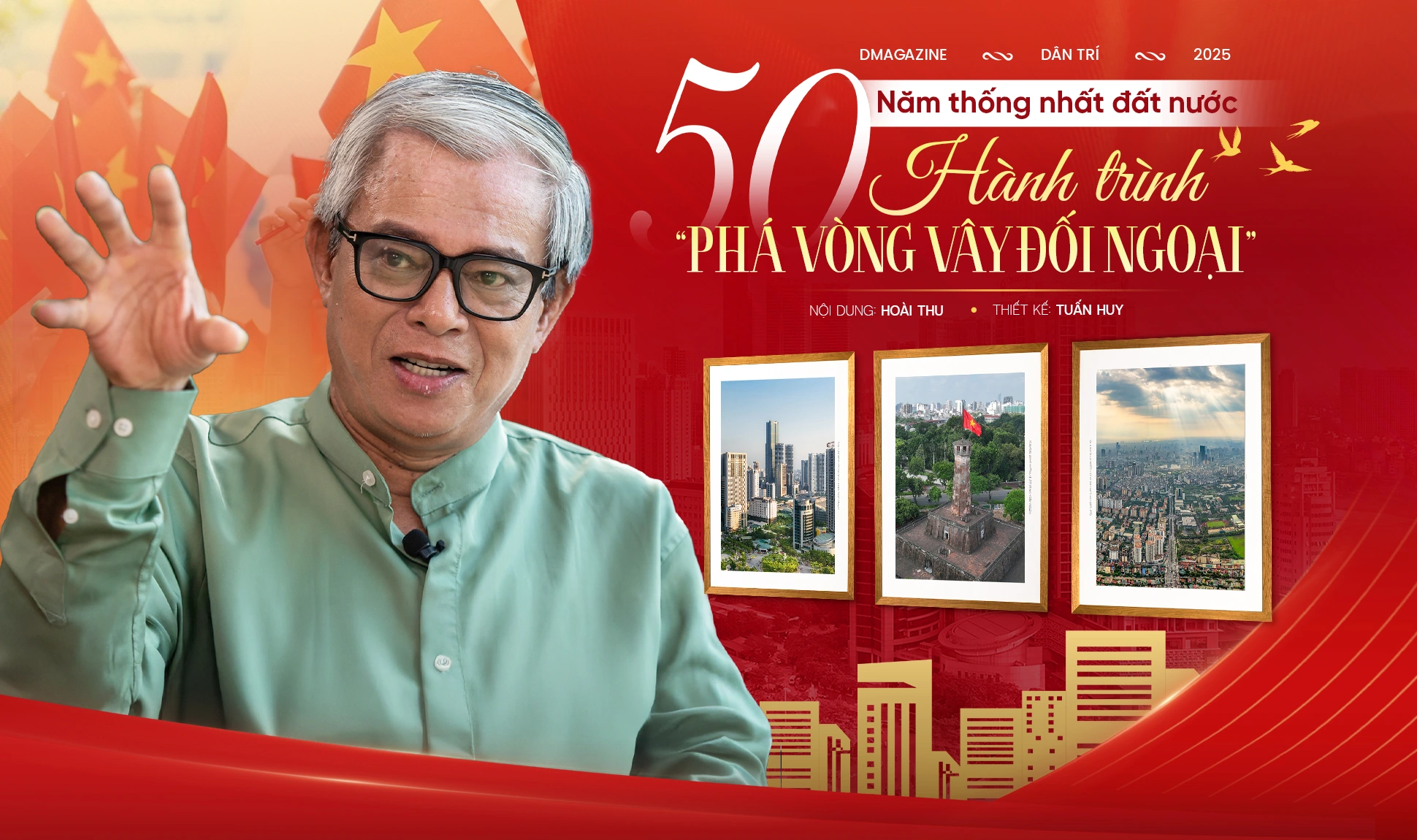

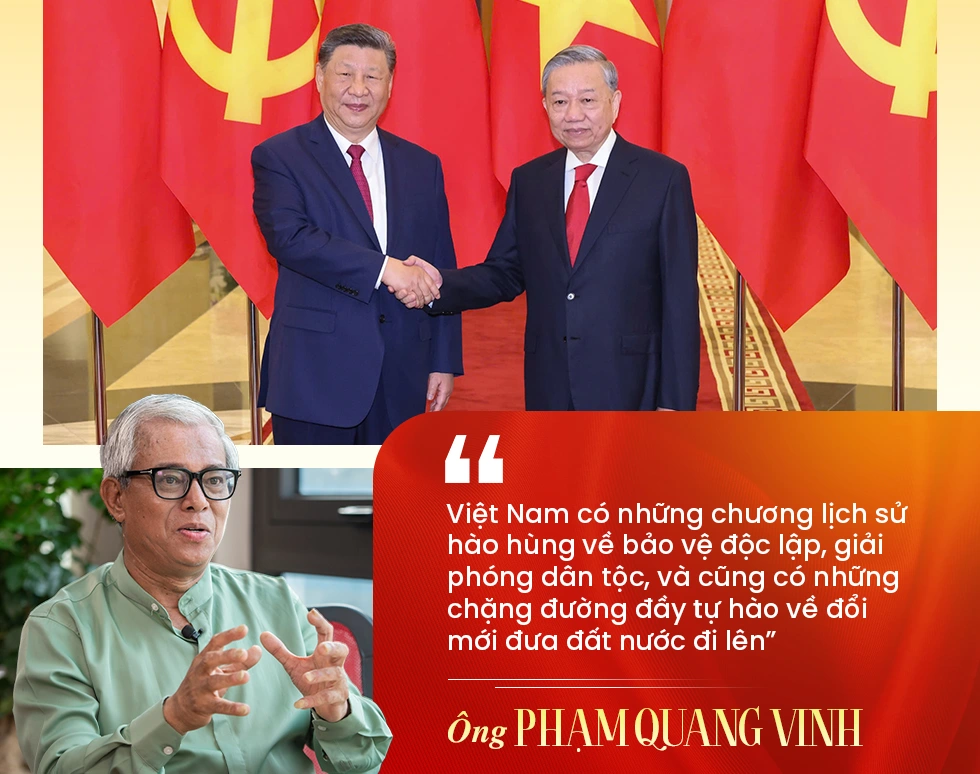
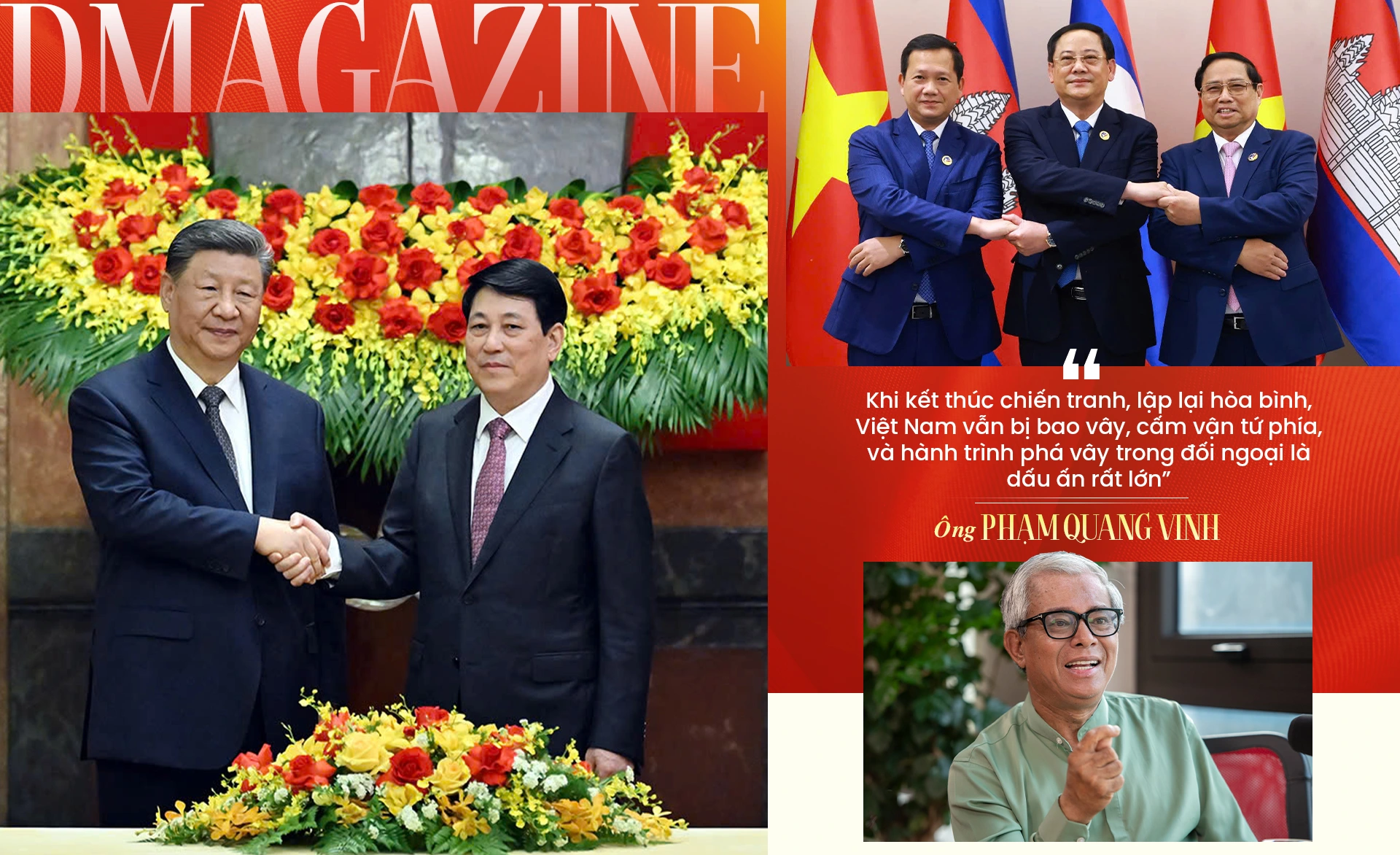
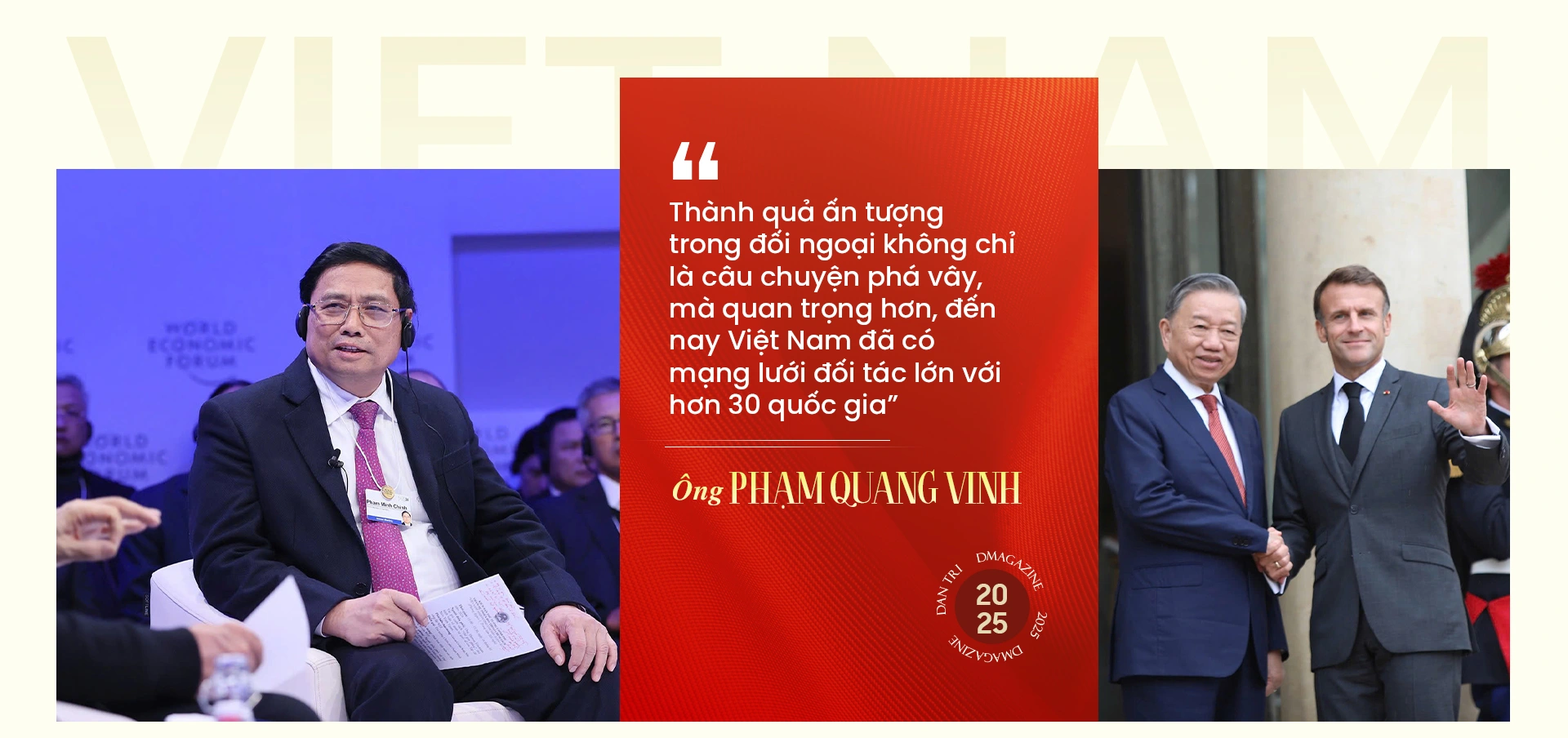
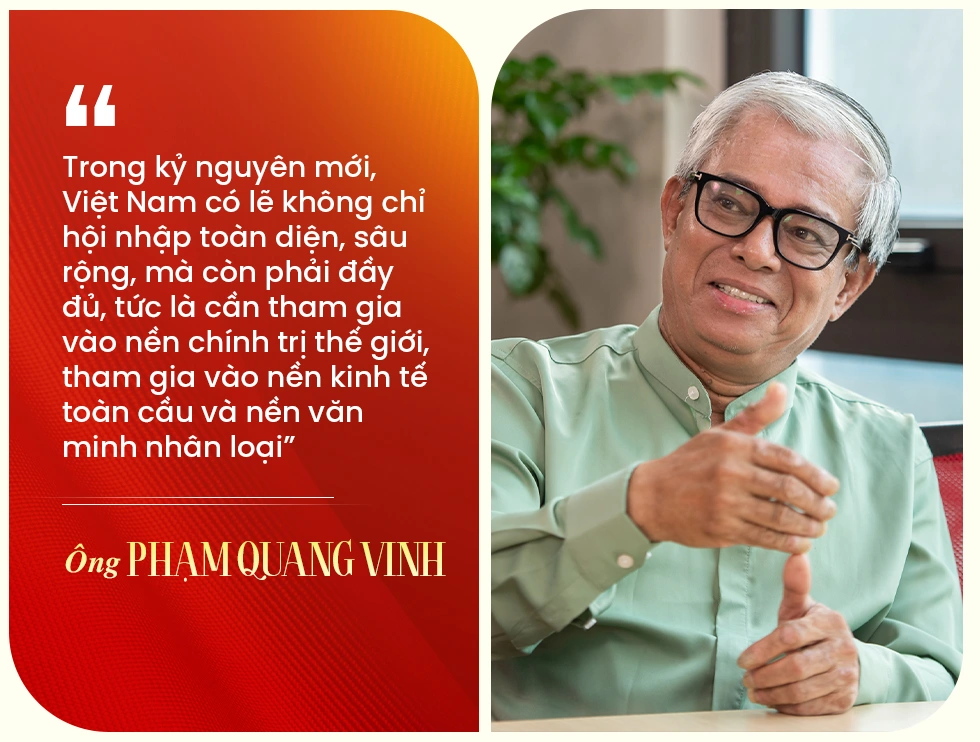
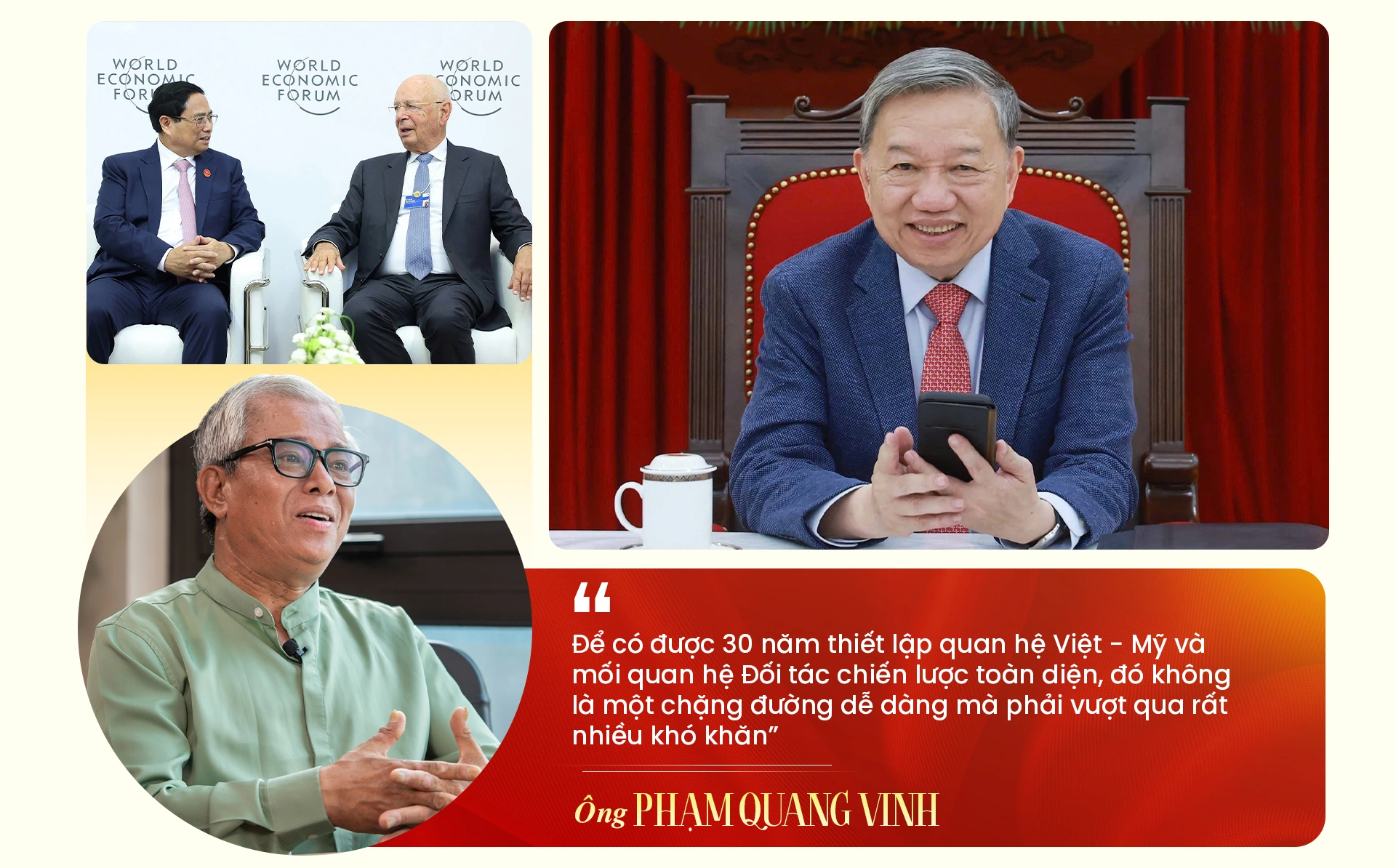

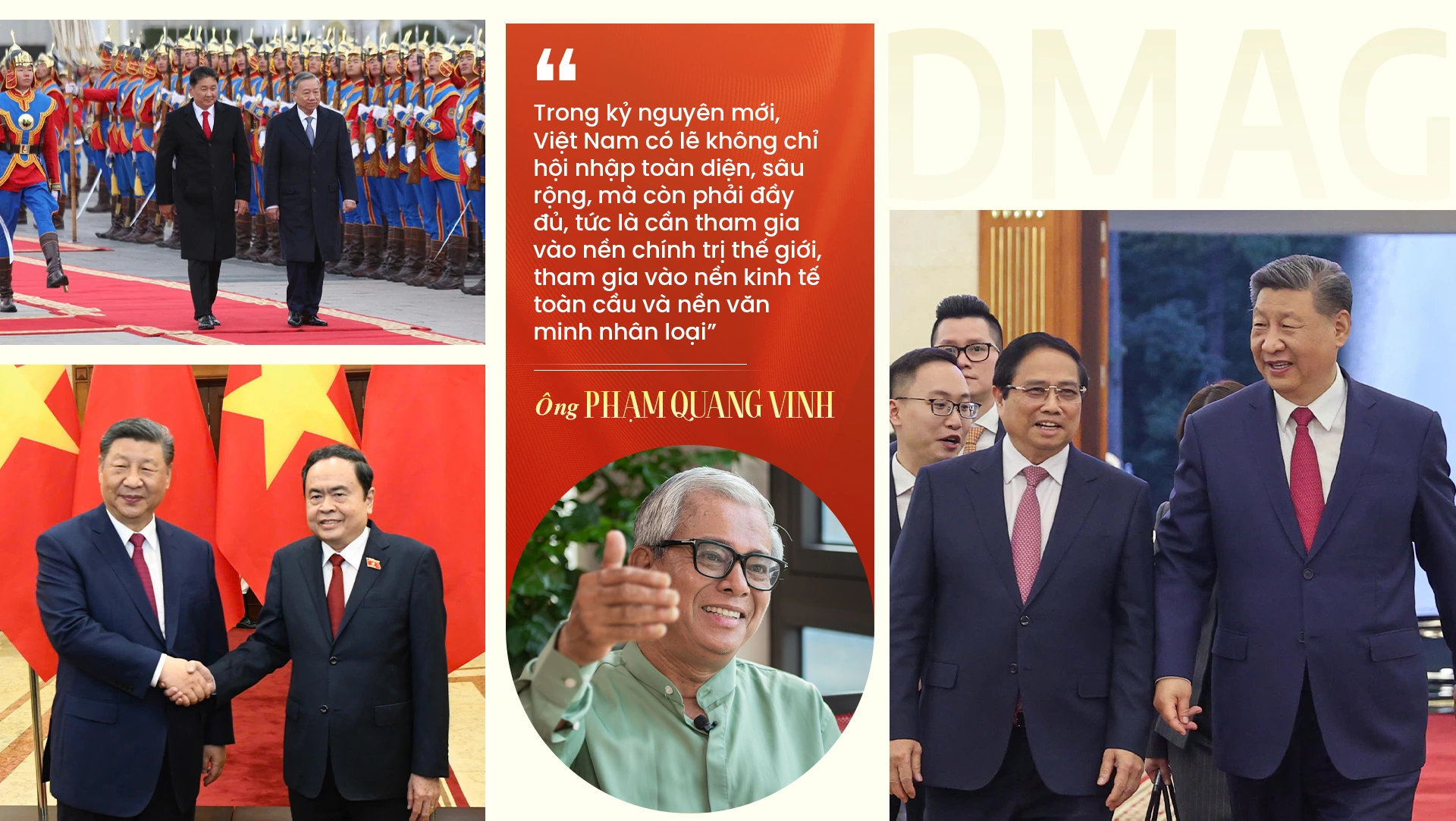
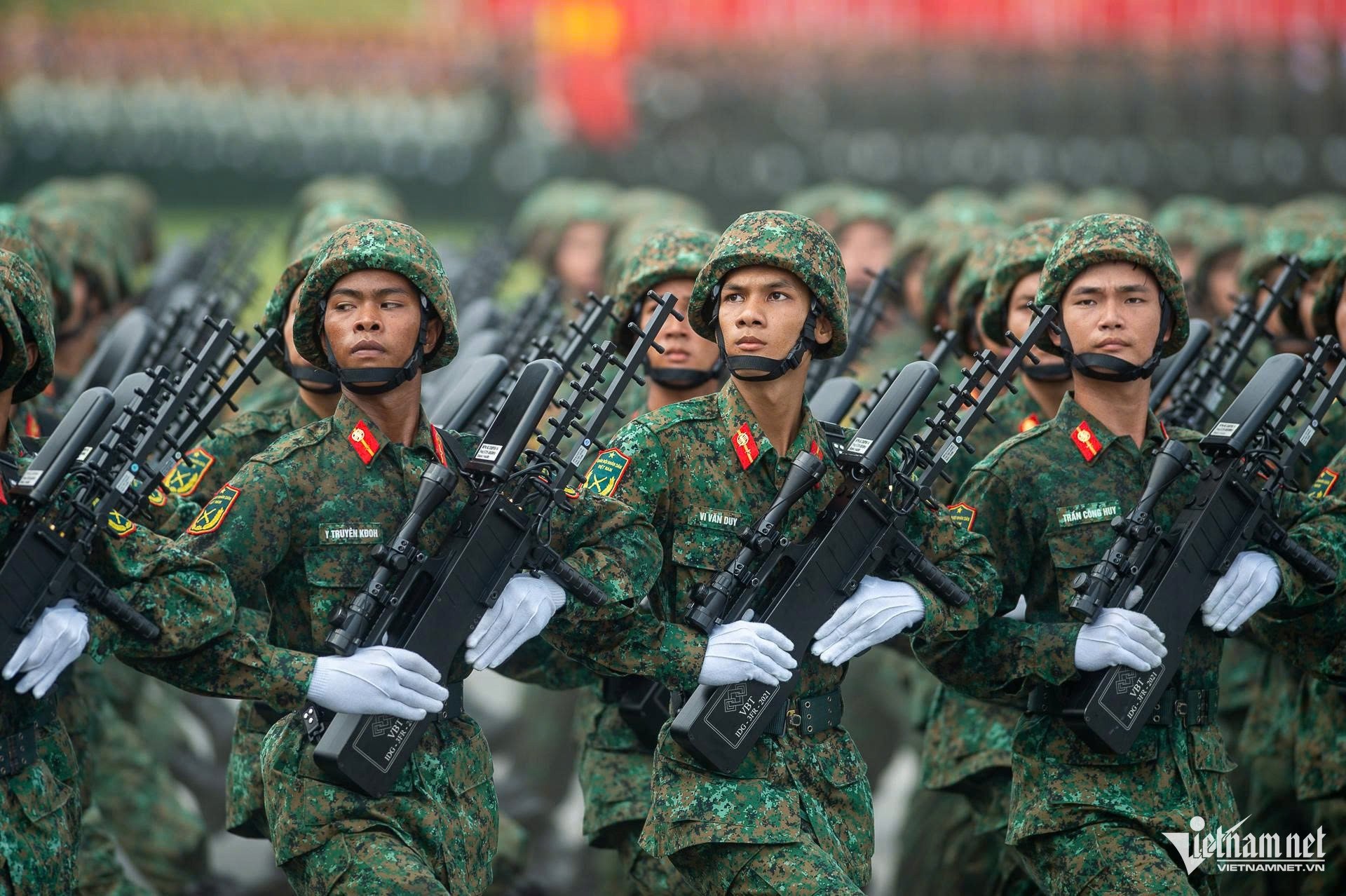
![[Photo] General Secretary To Lam attends the 80th Anniversary of the Cultural Sector's Traditional Day](https://vstatic.vietnam.vn/vietnam/resource/IMAGE/2025/8/23/9f771126e94049ff97692935fa5533ec)
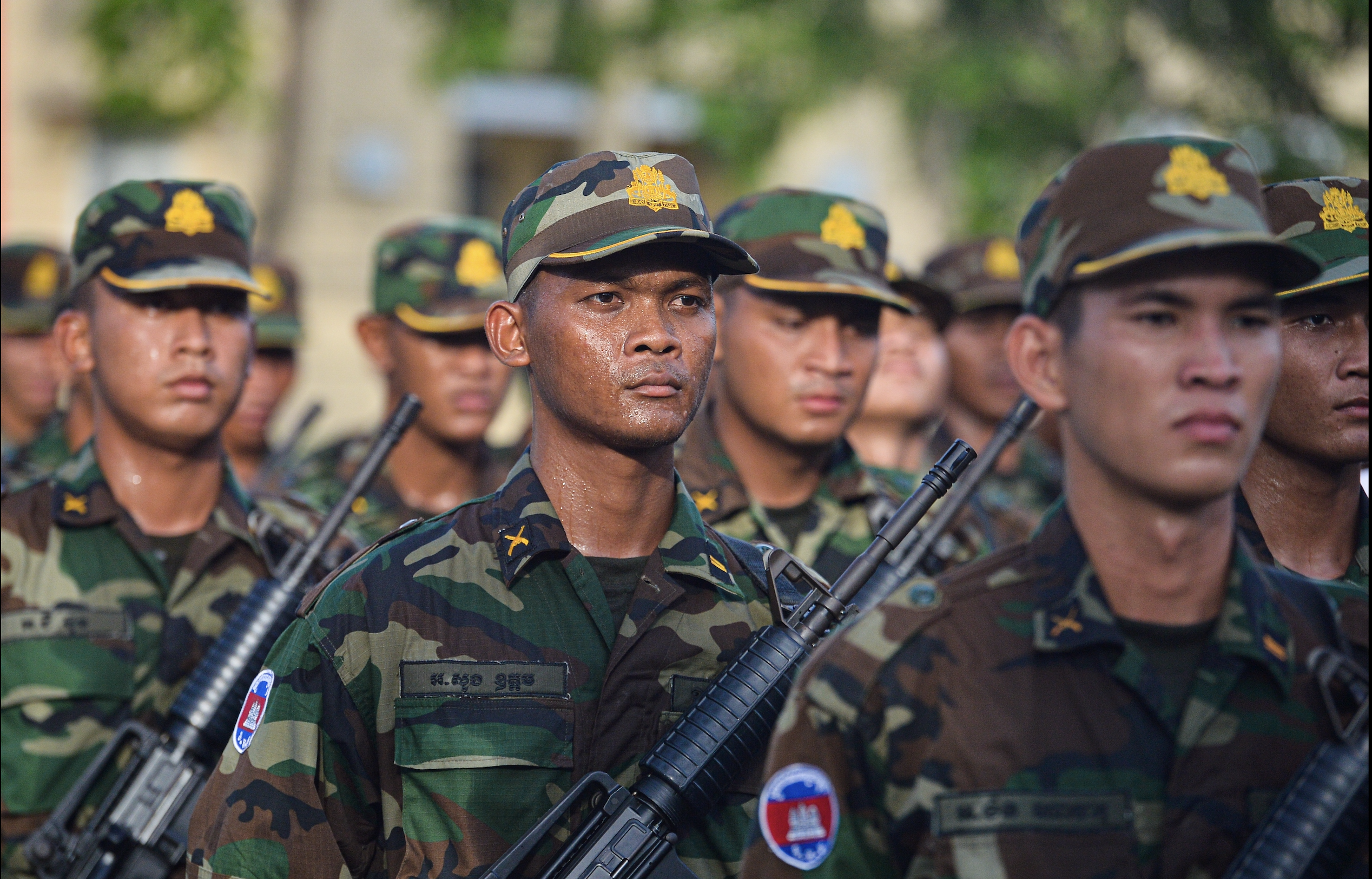



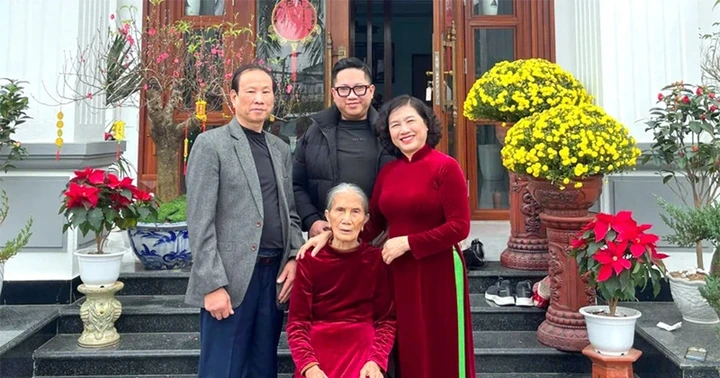




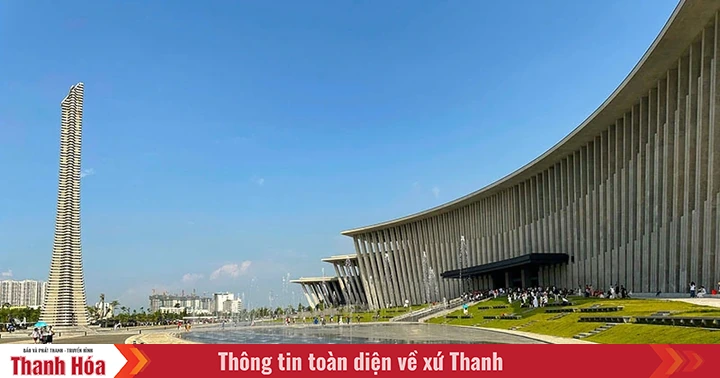
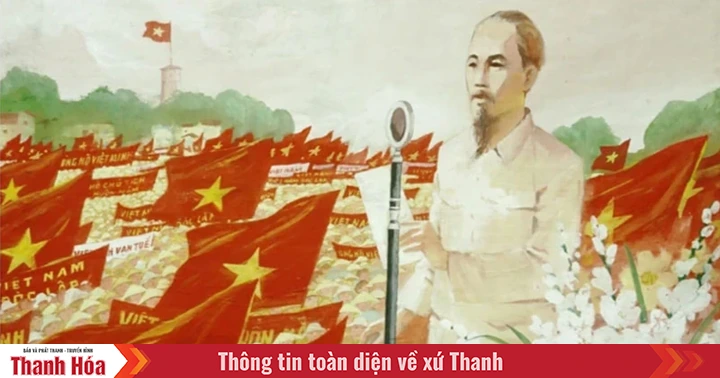
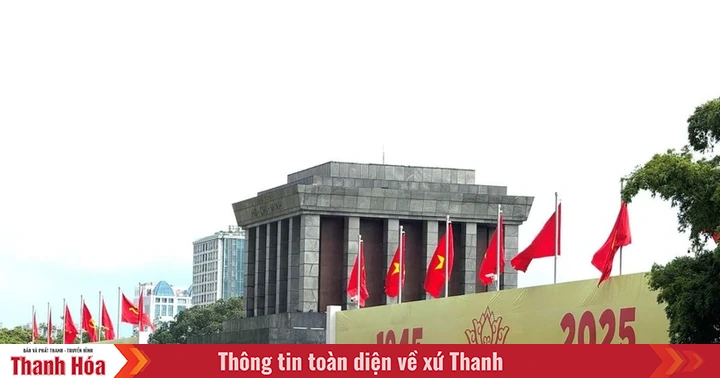















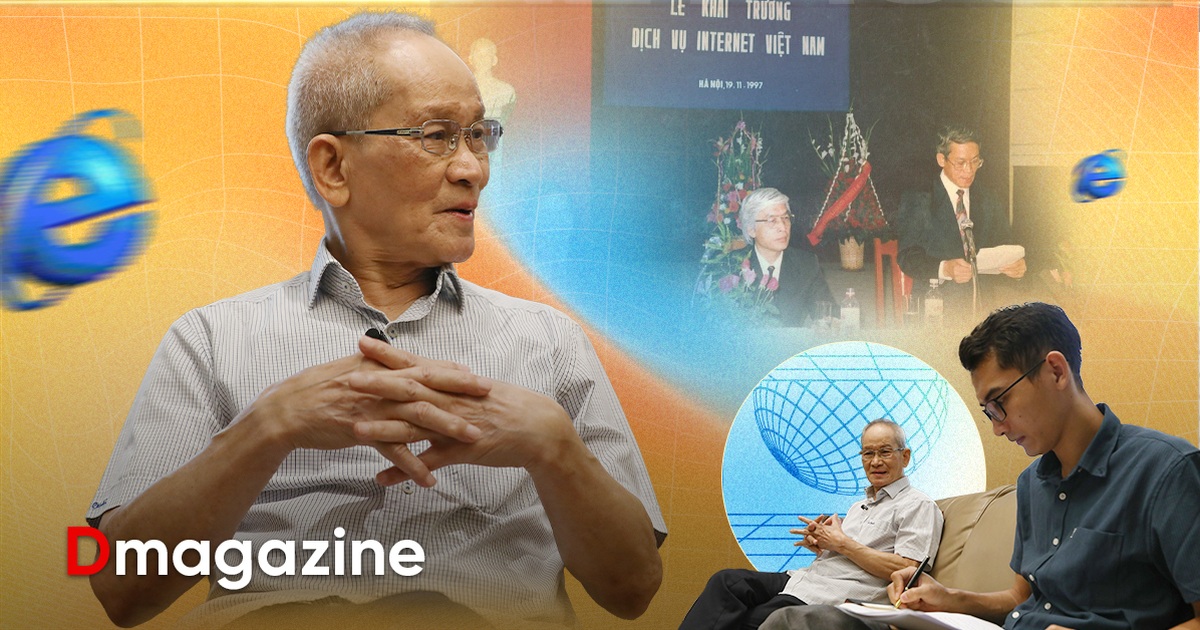
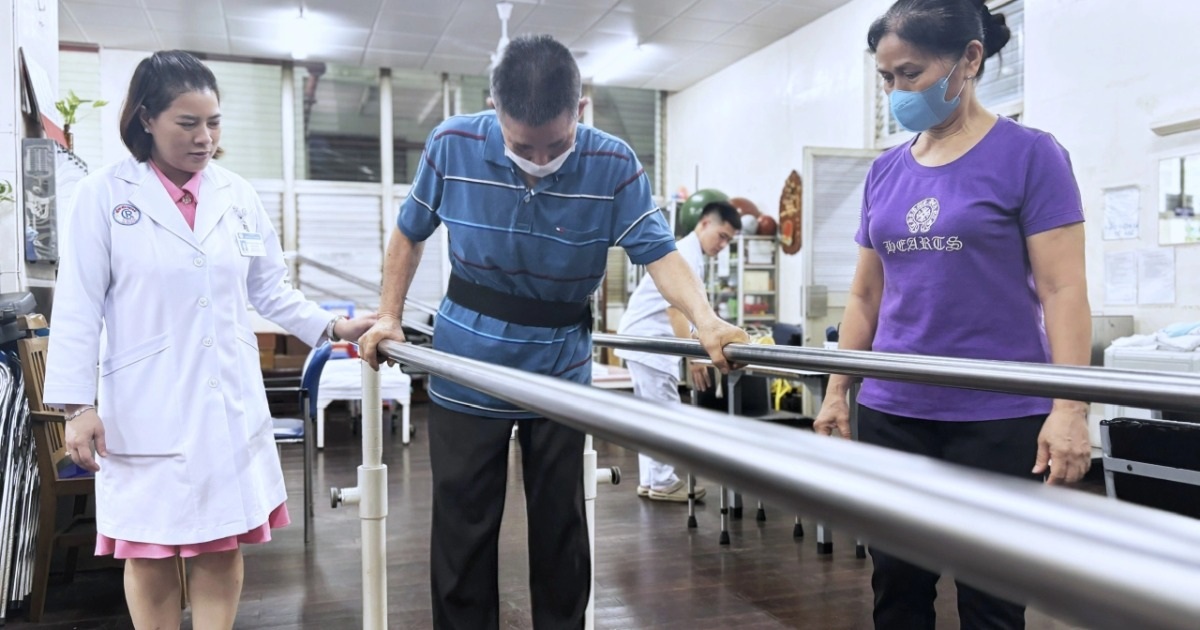
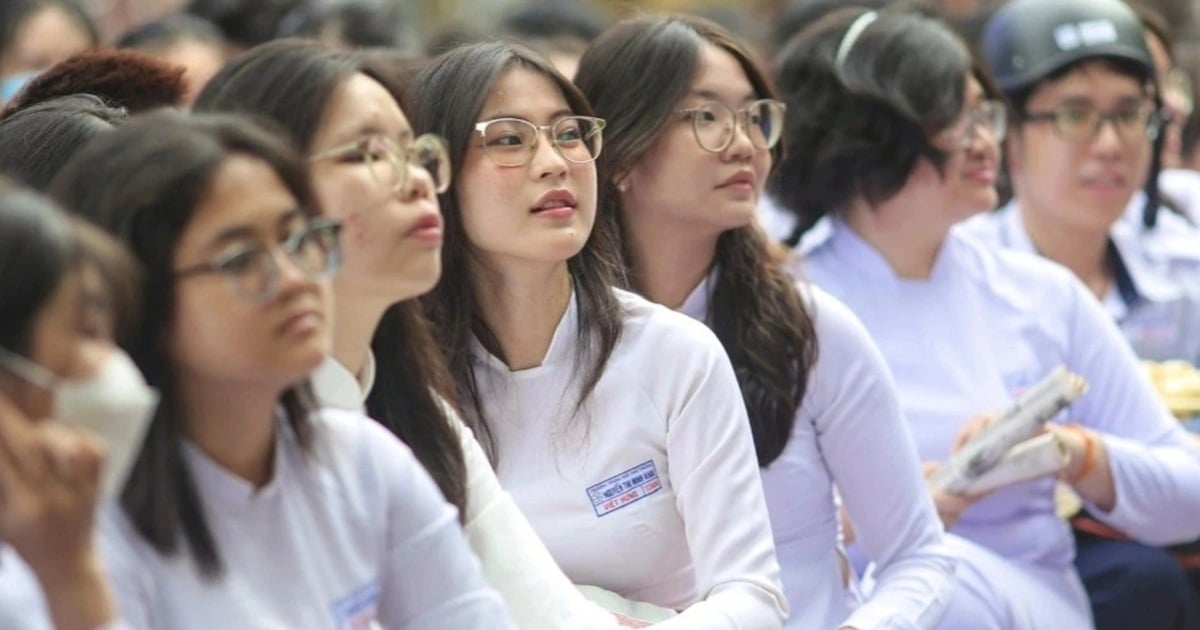


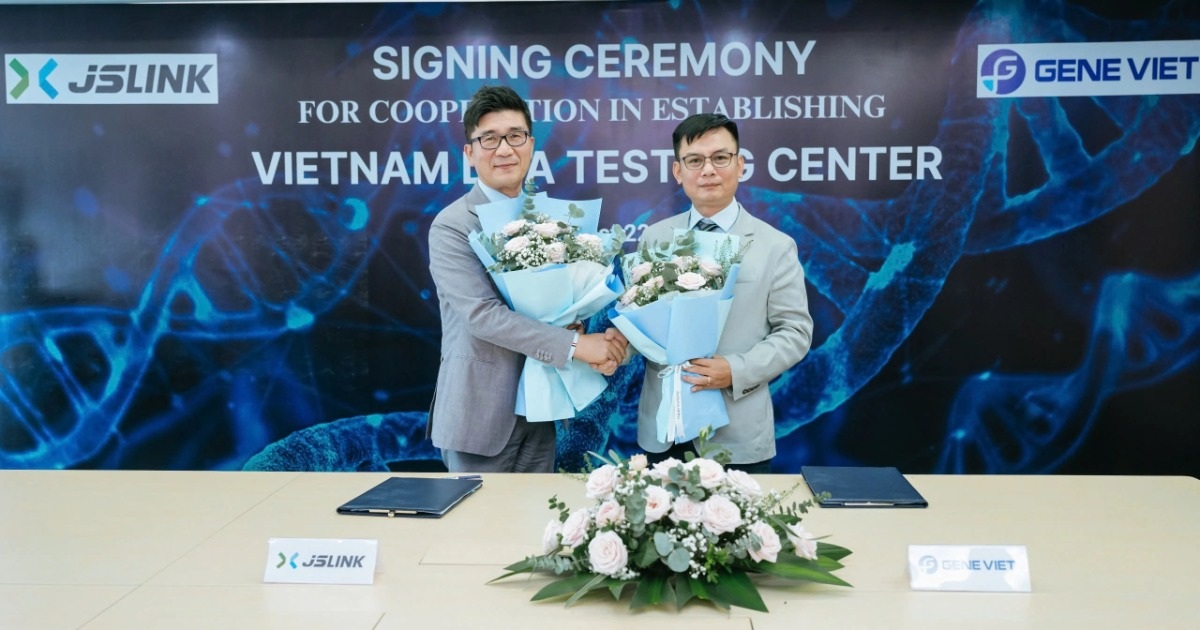






























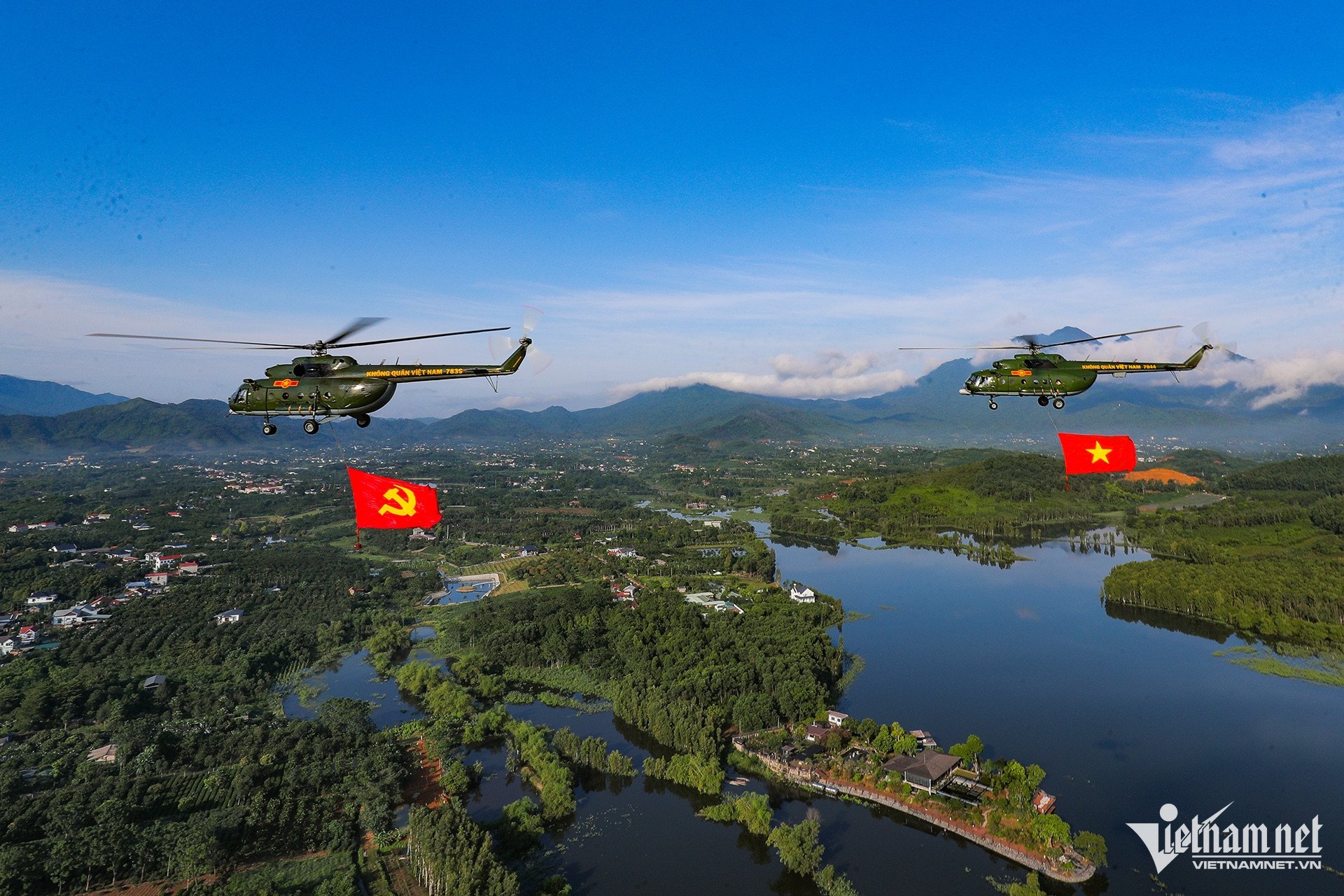
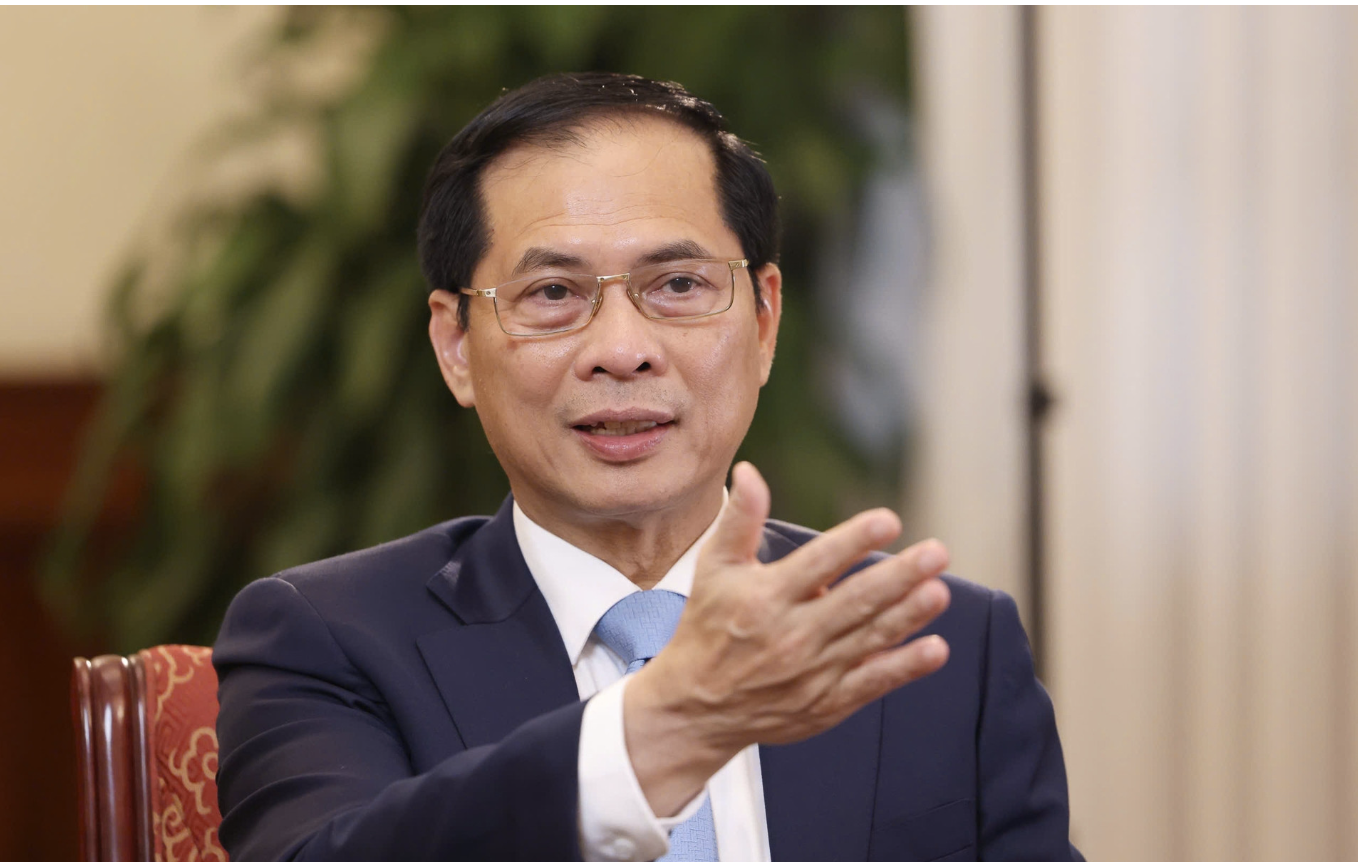
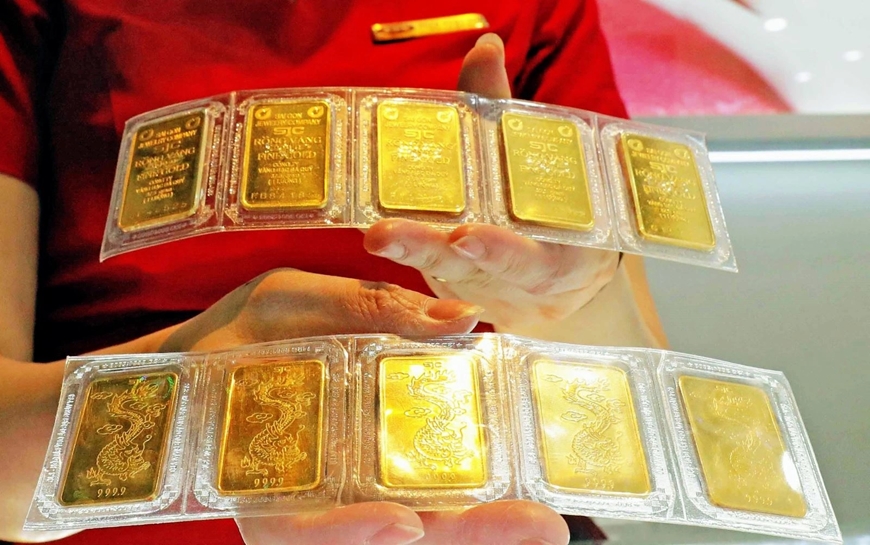
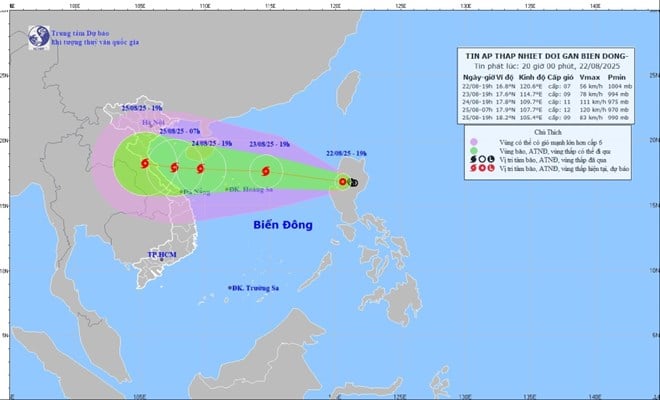





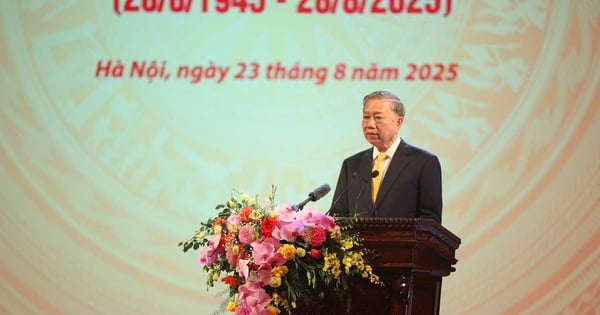
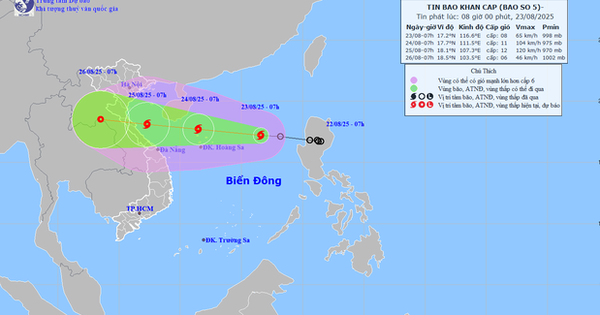
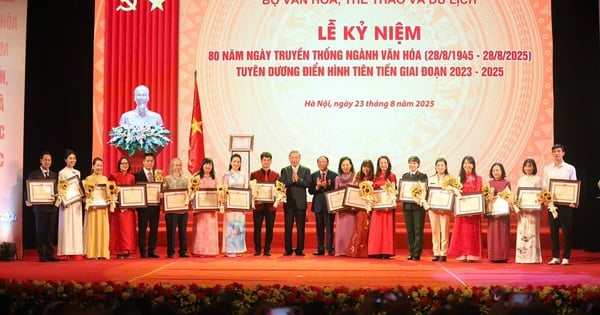
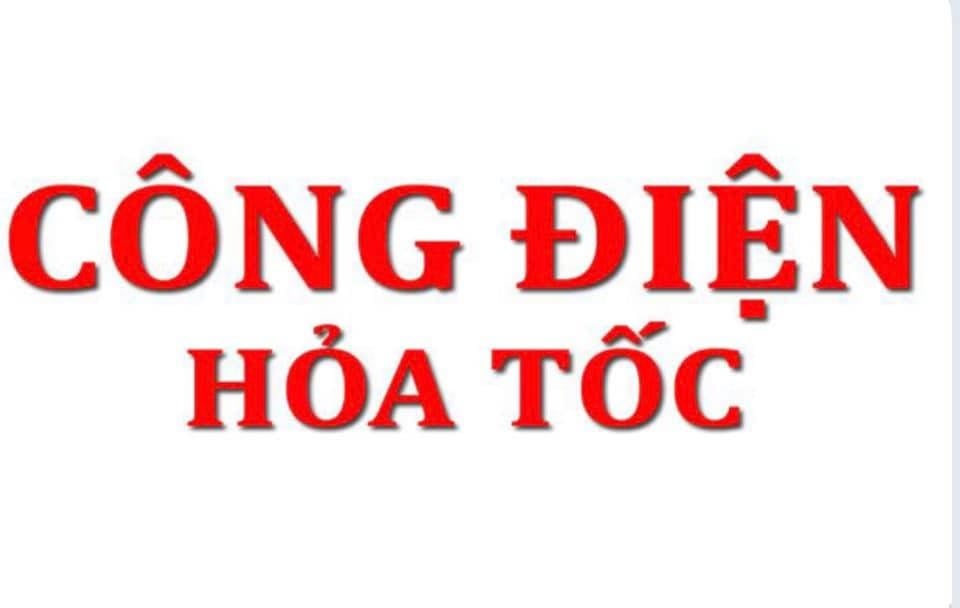



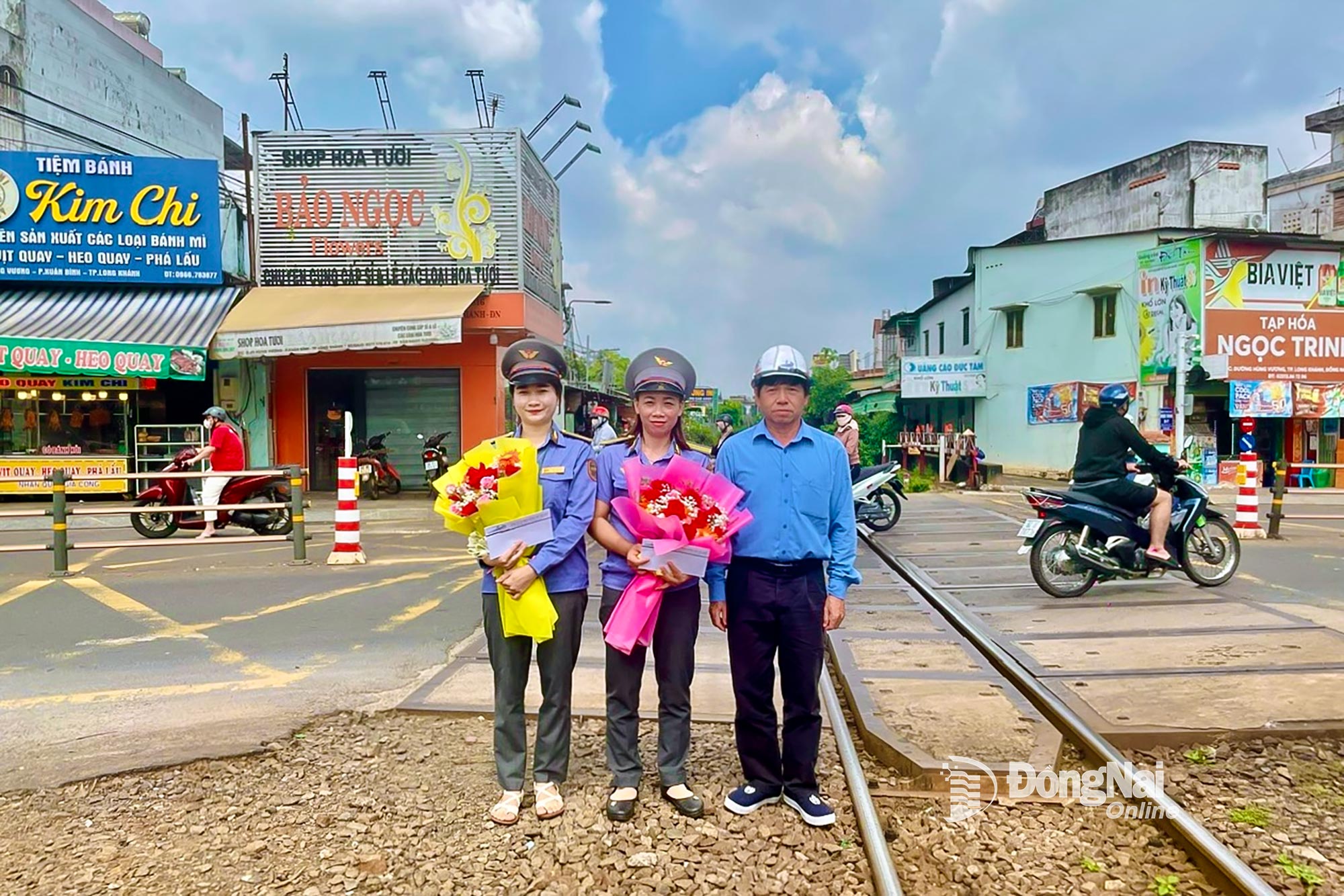

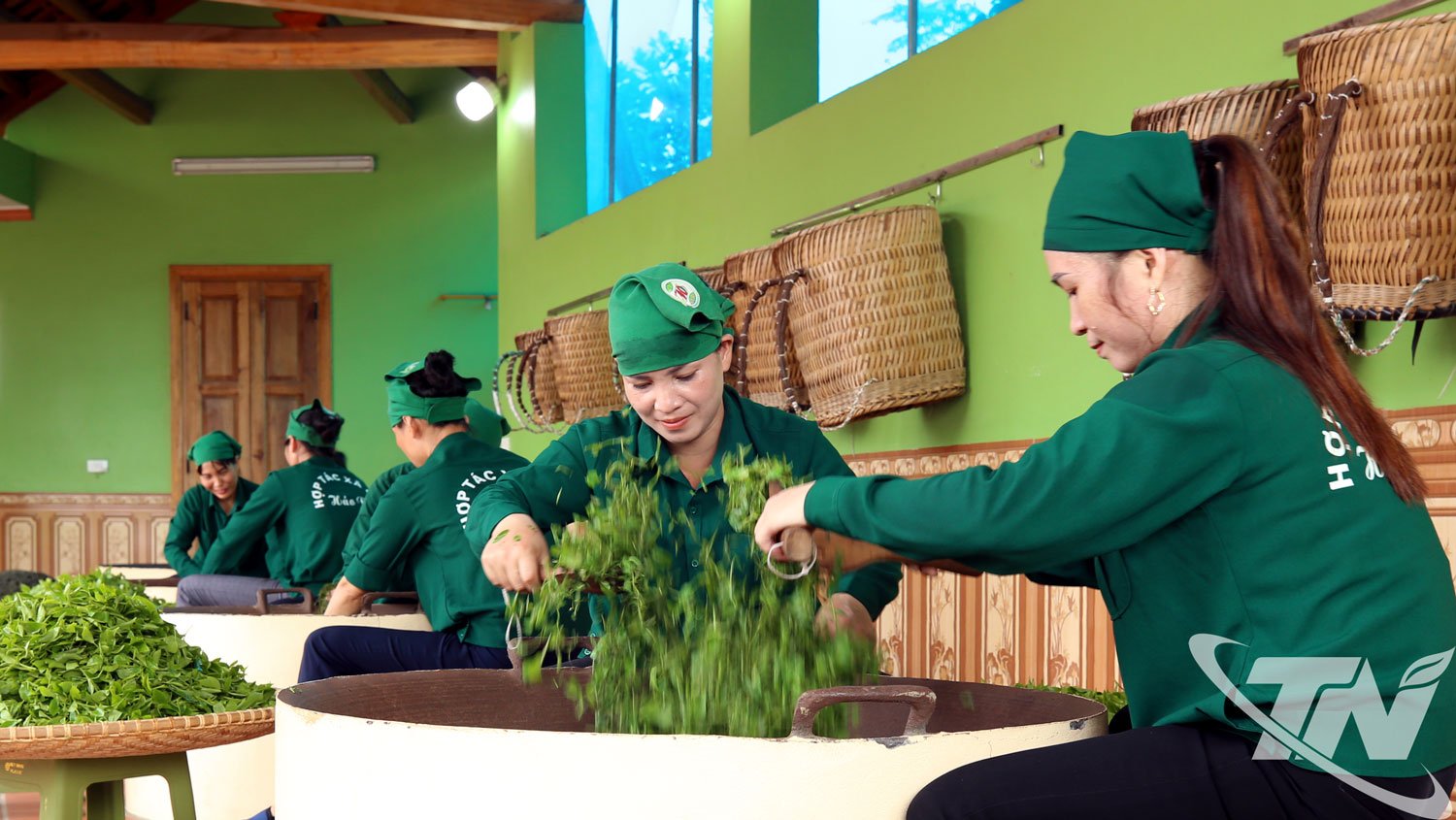

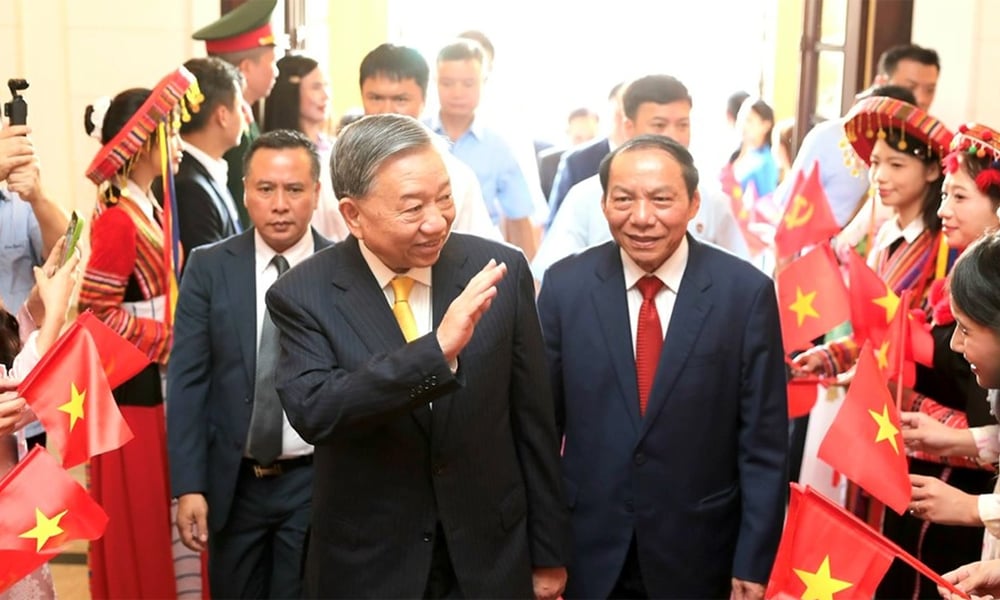

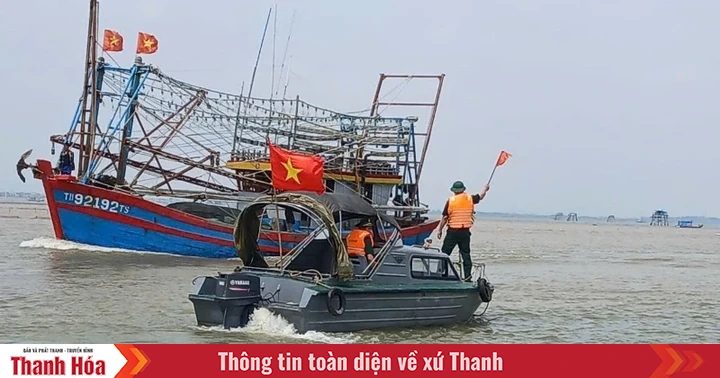
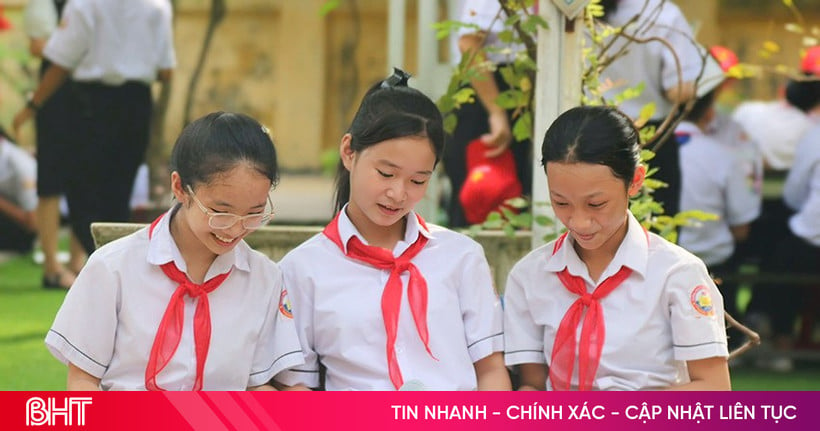







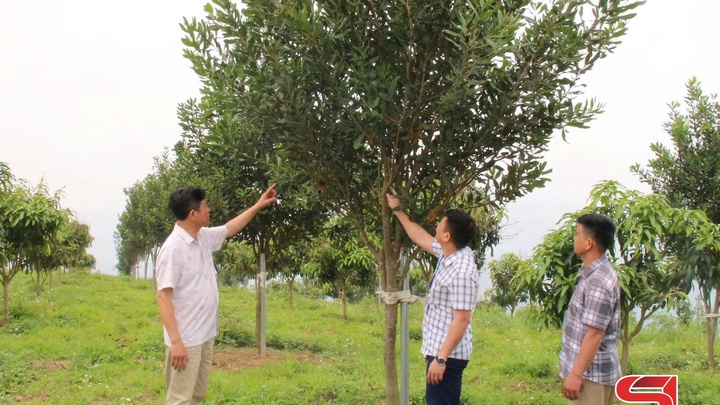

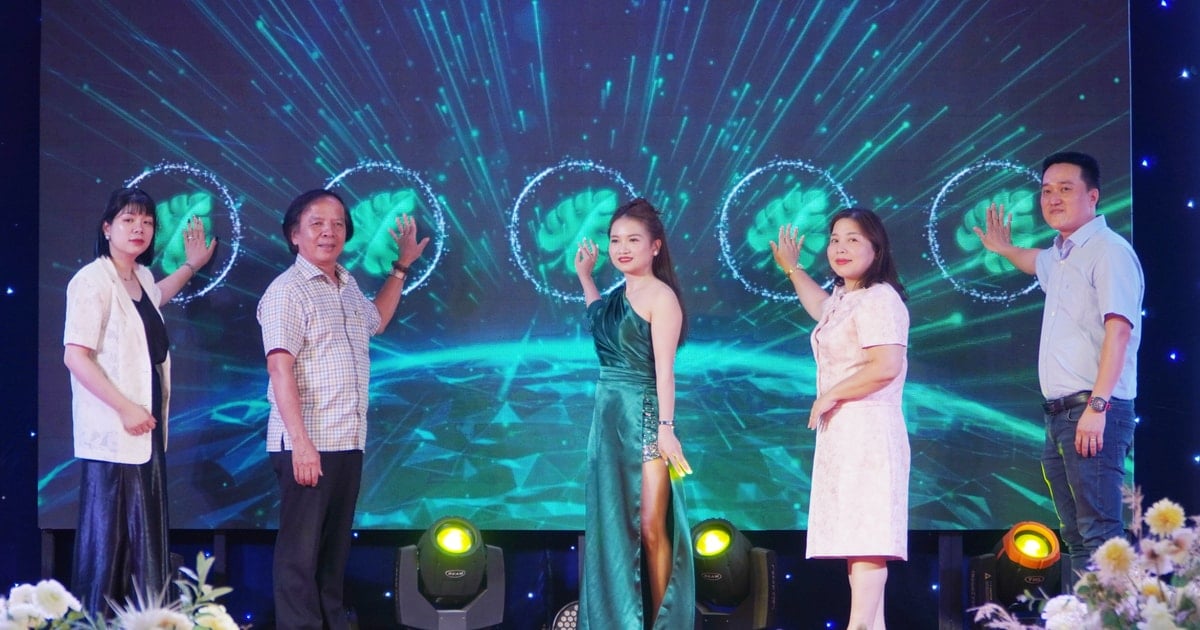





Comment (0)